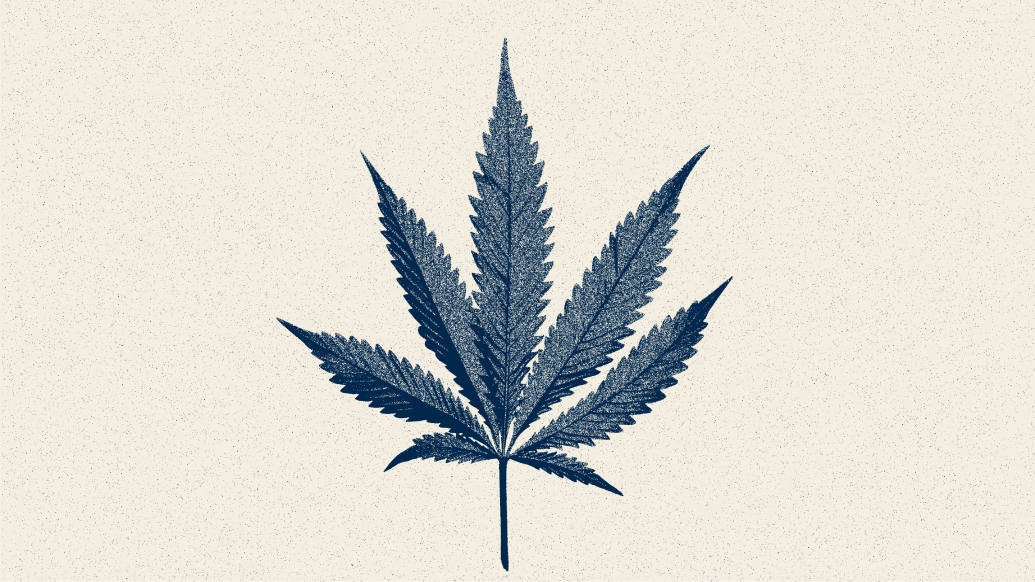Increased use by people over 50 since the pandemic and state-level legalization seen in study, with especially high use found in those who also engage in unsafe levels of alcohol use
5:00 AM
Author |

More older Americans use cannabis now than before the pandemic, with 12% saying they’ve consumed a THC-containing substance in the past year and 4% saying they do so multiple times a week, according to a study of people aged 50 to 80.
Those who drink alcohol at risky levels have a much higher rate of cannabis use
The findings, published in the journal Cannabis and Cannabinoid Research by a team from the University of Michigan’s Institute for Healthcare Policy and Innovation, suggest a need for more education and screening of older adults for cannabis-related risks.
“As the stress of the pandemic and the increased legalization of cannabis by states converged, our findings suggest cannabis use increased among older adults nationally.
“Older adults represent a vulnerable age group for cannabis use due to interactions with medications, risky driving, cannabis-related mental health impacts and increased possibility of falls and memory issues,” said Anne Fernandez, Ph.D., an addiction psychologist in the U-M Addiction Center and Department of Psychiatry who led the study.
The data in the study come from the National Poll on Healthy Aging, which IHPI runs with funding from AARP and Michigan Medicine, U-M’s academic medical center.
The national poll of 2,023 older adults was taken in January 2021, nine months into the official pandemic declaration and just as the first COVID-19 vaccines were being made available to the groups at the highest risk.
The 12% overall past-year use of cannabis seen in the new study is higher than the 9.5% seen in 2019 by other researchers pre-pandemic, and far higher than the 3% seen in another study in 2006, when only 12 states had passed medical cannabis laws.
The NPHA in 2017 found that 6% of older adults had used cannabis for medical purposes.
In the new study, in addition to the 4% who said they use cannabis products four or more times a week, another 5% said they use cannabis once a month or less.
The poll question asked about use of any product containing THC, the main psychoactive component of cannabis -- including edibles – and used multiple common names for cannabis.
It did not differentiate between medical and recreational use of cannabis.
Older adults who said they were unemployed, those who said they were unmarried and had no partner, and those who said they drank alcohol were more likely to say they used cannabis.
Fernandez notes an especially concerning finding: those whose alcohol use was high enough to cause physical and psychological harms were nearly eight times as likely to say they had used cannabis in the past year.
But even those with low risk alcohol drinking patterns were more than twice as likely to say they had used cannabis in the past year.
This group of dual-substance users is one that doctors and public health officials should pay special attention to, she said.
“Other research has shown that using both alcohol and cannabis increases the chance that a person will drive while impaired,” she explained.
“They are also more likely to have physical and mental health issues, including substance use disorders. Screening for alcohol use, cannabis use, and other drug use could help more people get counseling and reduce their risk and risk to others.”
While there were no statistical differences among older adults by age, health or mental health status, income or education, those who said they had Hispanic backgrounds were less likely than non-Hispanic older adults to say they used cannabis.
Fernandez says this is consistent with other research showing lower cannabis use in the Latino community.
She advises any older adult who chooses to use cannabis products for any reason to be open with their health care provider about it, especially if they also drink alcohol or take certain medications.
Physicians, nurse practitioners and pharmacists can advise if any medications a person is taking might interact with cannabis, including ones for insomnia, depression and anxiety, opioid-containing pain medications, seizure medications, and blood thinners.
Read more about the poll methodology.
In addition to Fernandez, the study’s authors are U-M addiction psychologist Lara Coughlin, Ph.D., poll deputy director Erica S. Solway, Ph.D., poll manager Dianne C. Singer, poll director Jeffrey T. Kullgren, M.D., M.S., M.P.H., poll data lead Matthias Kirch, M.S. and Preeti N. Malani, M.D., former poll director and current poll senior advisor.
In addition to the poll funding, Fernandez has research funding from the National Institute of Alcohol Abuse and Alcoholism (AA023869).
Paper cited: “Prevalence and Frequency of Cannabis Use Among Adults Ages 50–80 in the United States", Cannabis and Cannabinoid Research. DOI: 10.1089/can.2023.0056

Explore a variety of healthcare news & stories by visiting the Health Lab home page for more articles.

Department of Communication at Michigan Medicine
Want top health & research news weekly? Sign up for Health Lab’s newsletters today!





